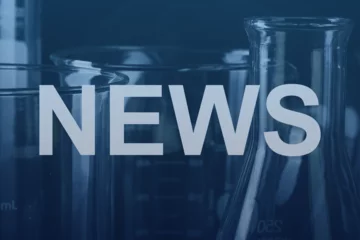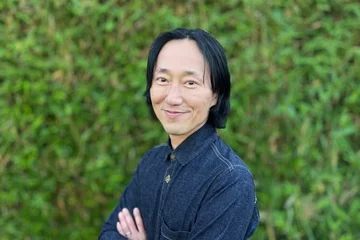Meet Jordan Whetstone, Kul Wicasa Lakota and Trailblazer for the UCLA Diversity in Research Program

To celebrate Native American Heritage Month, the CTSI would like to honor Jordan Whetstone, Grants Submission Unit (GSU) Project Manager and Diversity in Research Program Coordinator as well as a vital member of the UCLA community. In addition to her role in the CTSI, she is Kul Wicasa Lakota, a 4th Generation runner, founder of Rising Hearts, and filmmaker. She has worn many hats and multi-tasked between her professional work and her community passions since the beginning of her career. On top of that, she balances all this with her important role as a mom to a 2.5-year-old and 10-month old identical twin girls!
Jordan’s current efforts at UCLA is a passion project borne of a vision for a more inclusive future, the CTSI GSU’s Diversity in Research Program. The purpose of this program is to uphold the UCLA DGSOM values of Inclusive Excellence and CTSI’s belief that health care is a human right and that UCLA should serve as a place that will continue to educate and support the next generation of researchers with that core value in mind.
Jordan has a background in grants management and writing that began in Washington DC in her role at the Health and Human Services (HHS) Administration for Native Americans. “I saw firsthand how competitive the grant world is [and] the lack of education around understanding a whole group of community, [as well as] the limited pathways for financial stability and sovereignty for Indigenous communities,” she explains. As she transitioned to the west coast in 2017, continuing her work in grants and community engagement, she realized she wanted to do more. Specifically, she wanted to help those who need support when resources are limited, preventing them from getting funding, and to work to increase the grantee pool of diverse leaders across communities. In 2019, her career led her to the UCLA CTSI Grants Submission Unit (GSU).
“I couldn’t have been more excited!” Jordan recounts. “When I met the team, it was obvious that we cared about our work and supporting those that needed it.”
Jordan’s work at GSU led to establishing the Diversity in Research Program. The goal is to ensure longevity and forge strong relationships between participating groups, faculty, early-stage investigators, students, and admin. Alongside that, the GSU endeavors to provide consistent grant submission support for developing researchers of diverse backgrounds to ensure they have successful careers in the research workforce. To that end, Jordan and the GSU team have been providing grants submission support to investigators interested in pursuing NIH-funded Diversity Supplement awards. Four of her projects were awarded this year with five more in the works for future funding consideration.
When asked about her vision with launching the program, Jordan reports: “It was an idea to really focus on underrepresented investigators, early-stage investigators, and faculty that need to have this support because it matters, and I’m always rooting for those that have had to work so hard to get to where they are. I’m rooting for the little guys. And I celebrate the pathways for meaningful collaborations and mentorships, as it sets a healthy cycle of reciprocity.”
There is still a lot of work that needs to be done among the research community to successfully engage and support a diverse workforce and engage with external communities, and Jordan is a wealth of knowledge when it comes to what approaches to use. When asked for advice in this area, this is what Jordan had to say: “When any research is done on underrepresented communities, I highly recommend that those [working on an] application or [with a] study idea needs to foster meaningful relationships with the communities first, beyond just an introduction or a few calls or meetings. Trust and transparency need to be cultivated. The communities need to be part of the process, with community members as advocates and consultants during the process, and once the project is done, there needs to be lines of communication and engagement that continue.”
She emphasizes that those doing the study need to have cultural and/or community engagement trainings on how information can be gathered in a way where it won’t make the communities feel like that info is being extracted from them to ensure they don’t feel tokenized or disrespected during the process. A code of ethics within the study protocols should be maintained by everyone on the study team. Within the workspace, a safe environment needs to be cultivated and supported. “Those working that are from underrepresented communities, want and need to see themselves in the spaces they are part of,” Jordan explains.
As a final note, Jordan wanted to share these words: “Be a good relative. Keep learning, keep growing, celebrate community, and create the spaces you want to be part of. The heart work never stops.”
Faculty interested in submitting a diversity supplement or related awards, are encouraged to contact Jordan and the GSU at GSU@mednet.ucla.edu. Please also feel free to find out more about Diversity Supplements and additional equity-focused funding opportunities.
Image Source: Jordan Whetstone



